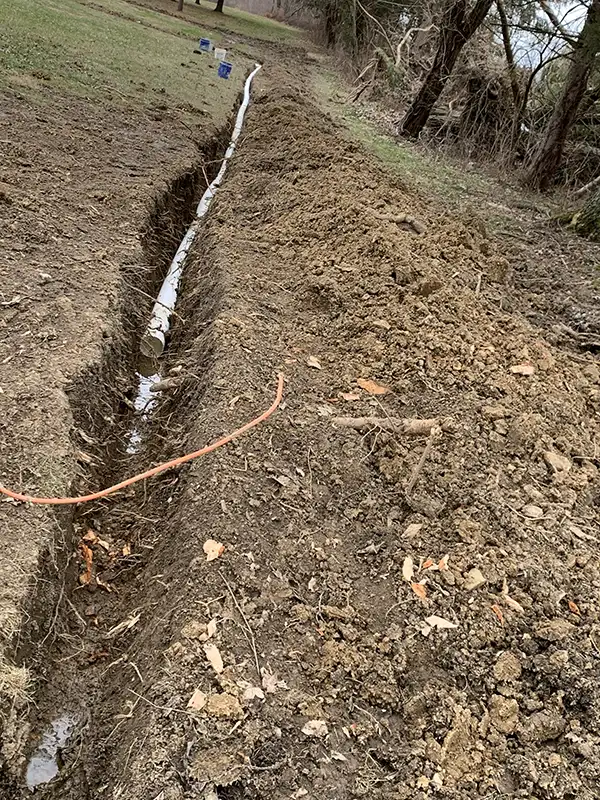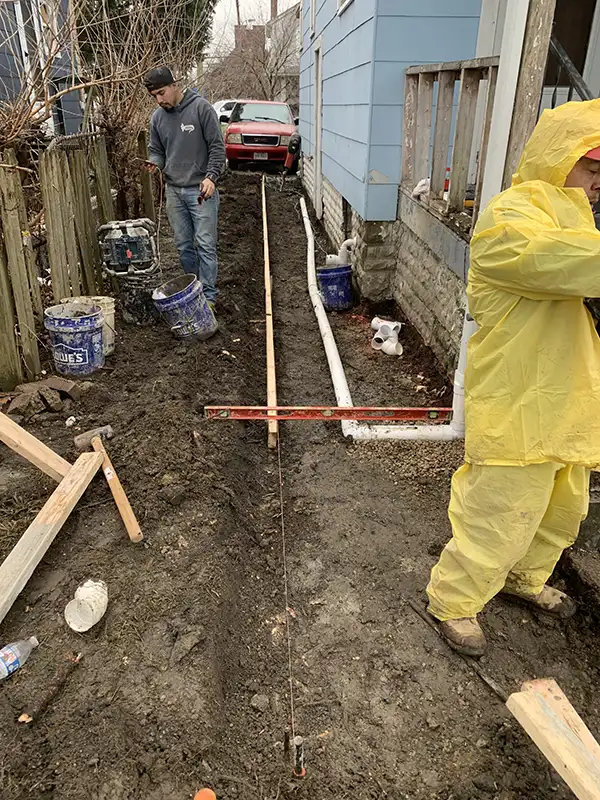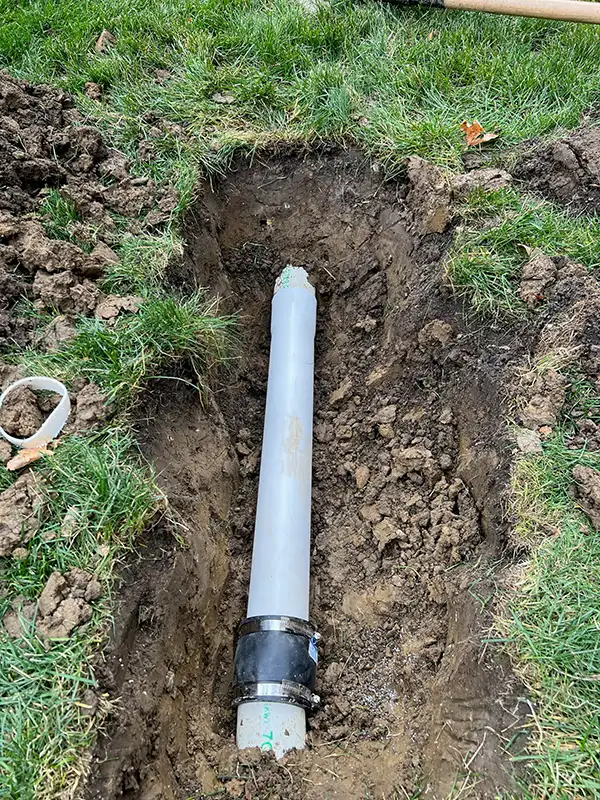Yard Water Issues and Drainage Solutions
Yard water issues can cause water damage, soil erosion, and foundation problems. Effective drainage solutions include French drains, which use perforated pipes and gravel to redirect water, and downspout systems to channel roof runoff away from foundations. Surface drainage with catch basins and channel drains collects excess water, while dry wells manage it through subterranean storage. Grate and swale systems prevent pooling and erosion. Regrading soil adjusts slopes for proper water flow, enhancing plant health and yard aesthetics. These methods protect your property and if you continue, you’ll discover how each solution can be implemented effectively.
Yard Drainage Solutions
Yard drainage solutions are indispensable for preventing water damage and maintaining the integrity of both residential and commercial properties. Effective drainage prevents problems like soil erosion, foundation damage, and basement flooding. One popular method is the use of French drains, which channel water away from properties by using perforated pipes surrounded by gravel. These systems are particularly effective in eliminating standing water and reducing mosquito habitats.
Downspout systems also play an important role. They direct roof water away from foundations, which helps prevent basement leaks and soil saturation near building structures. Regular maintenance, such as clearing clogs or replacing collapsed downspouts, guarantees these systems function at their best.
Surface drainage solutions, including catch basins and channel drains, collect and redirect excess water from areas like patios and driveways. These systems prevent water pooling and reduce the risk of water damage to paved surfaces and adjacent buildings.
Waterproofing techniques complement these solutions by adding an extra layer of protection. For example, window well drains safeguard basements from water intrusion, enhancing the overall waterproofing strategy. Drainage assessments are essential for identifying potential problems and tailoring solutions to each property’s unique needs, guaranteeing long-term effectiveness and peace of mind.
Dry Well Installation
Installing a dry well effectively manages excess water by directing it into a subterranean storage system, where it can gradually percolate into the surrounding soil. The dry well benefits homeowners by reducing water accumulation, which helps prevent flooding and erosion. The installation process begins with selecting an appropriate location, considering soil types such as sandy or loamy soils that allow better water infiltration. After digging an adequate-sized hole, a perforated container is placed inside and surrounded by gravel to facilitate drainage.
Homeowners should also be aware of local regulations, as some areas may have specific guidelines or permits required for dry well installations. It’s essential to follow these regulations to avoid potential legal issues. Maintenance tips for dry wells include periodically checking for sediment buildup and verifying the inlet remains clear of debris. Regular inspections help maintain the efficiency of the system, preventing clogs and prolonging its lifespan.
Understanding the dry well benefits and following the correct installation process guarantees effective water management. By considering soil types and complying with local regulations, homeowners can achieve a functional and long-lasting drainage solution, keeping their yards dry and damage-free.
Grate/Swale drainage
While dry well installations offer effective subterranean solutions for water management, grate, and swale drainage systems provide surface-level strategies to manage excess water efficiently. Grate installations are particularly effective in paved areas like driveways and patios. These systems channel water through grates into underground drainage pipes, preventing surface water accumulation and reducing the risk of property damage.
Swales, on the other hand, are shallow, vegetated ditches that guide excess water away from essential areas. They integrate seamlessly into landscapes, providing a natural-looking solution that enhances both functionality and aesthetics. Regular swale maintenance is vital to guarantee that these ditches remain unobstructed and effective.
The drainage benefits of grate and swale systems are numerous. They not only prevent water pooling and erosion but also protect foundations and reduce the risk of basement flooding. Effective water management through these surface-level solutions can greatly enhance the longevity and health of a property.
Landscape integration is another key advantage. Both grates and swales can be designed to complement the existing landscape, blending in without disrupting the visual appeal. Consequently, they offer a harmonious balance between practicality and aesthetics in water management strategies.
Regrade Soil
When soil slopes incorrectly, regrading can effectively prevent water from pooling around a property’s foundation. By adjusting the slope of the soil, regrading guarantees proper drainage maintenance, directing water away from essential areas. This process not only prevents soil erosion but also enhances moisture control, reducing the risk of water damage to the property.
Regrading involves specific grading techniques to reshape the landscape, creating a gentle slope that facilitates water flow. This method is critical in areas with significant rainfall or poor soil absorption, as it helps mitigate the impact of standing water. By properly sloping the soil, regrading minimizes the chances of water accumulating near the foundation, which can lead to structural damage over time.
The landscaping impact of regrading is substantial, as it can transform the yard into a well-drained, aesthetically pleasing space. Proper regrading can also improve the health of plants by preventing excess moisture that can cause root rot and other plant diseases. Overall, regrading is an essential step in thorough drainage maintenance, guaranteeing that water is effectively managed and the property remains safe and dry.





